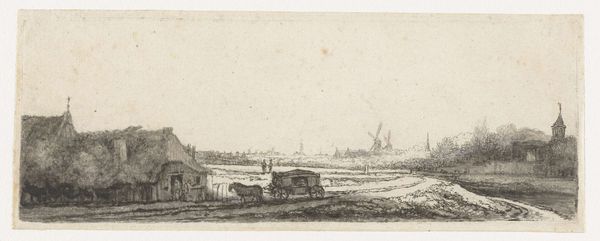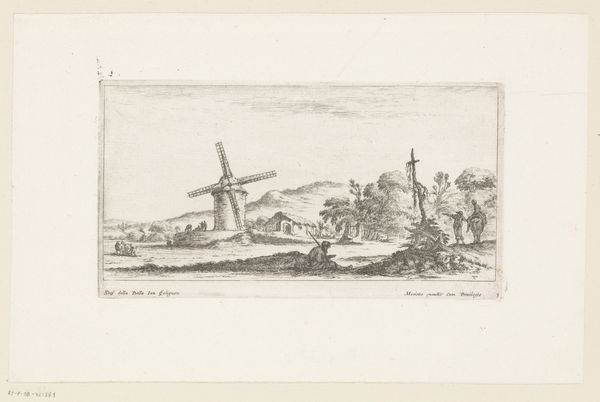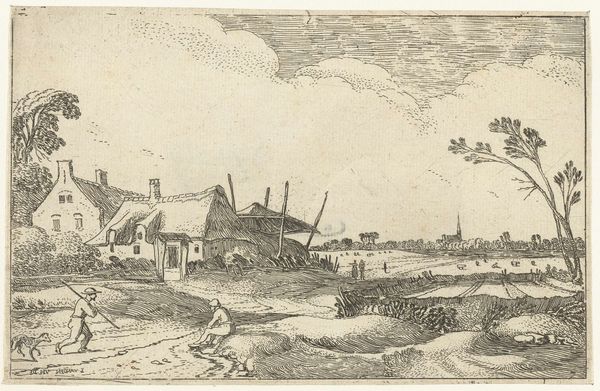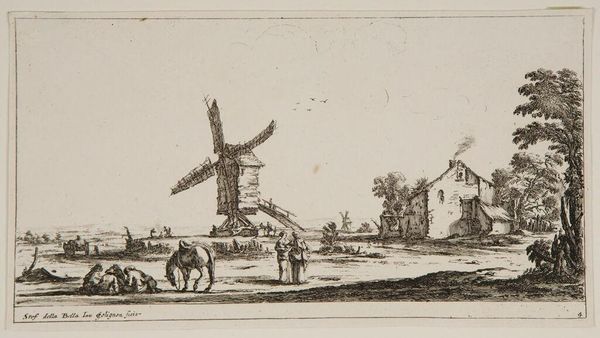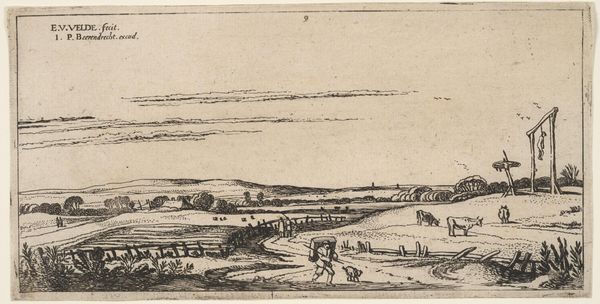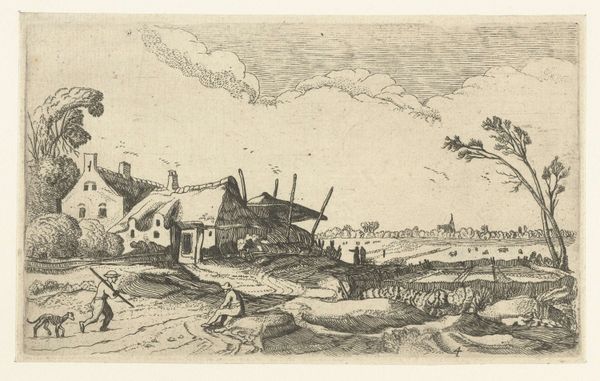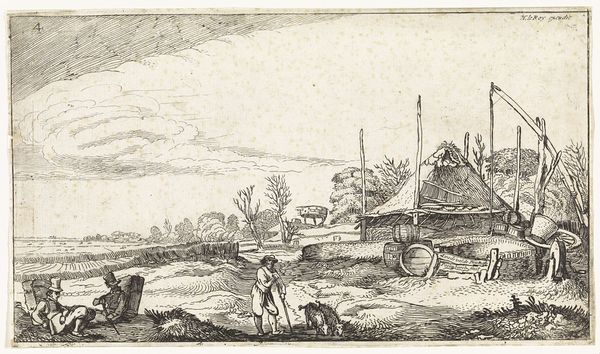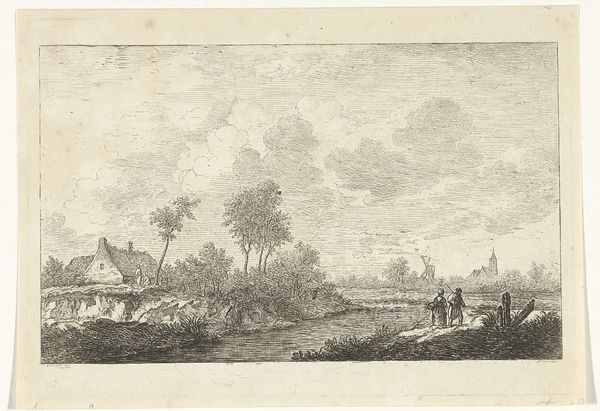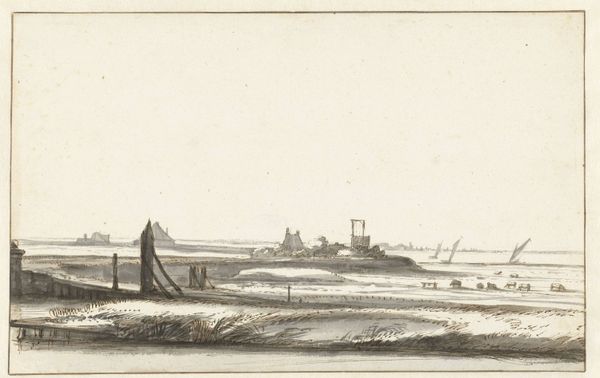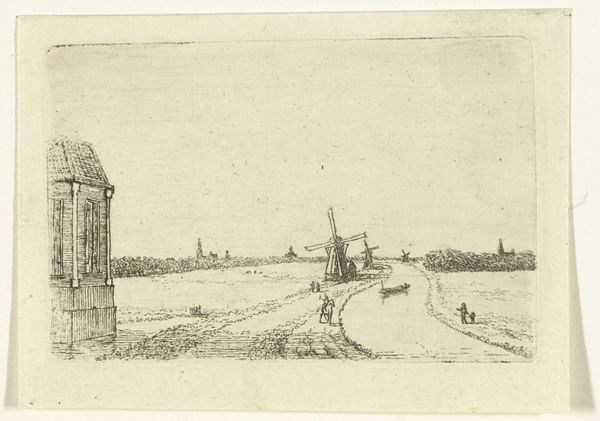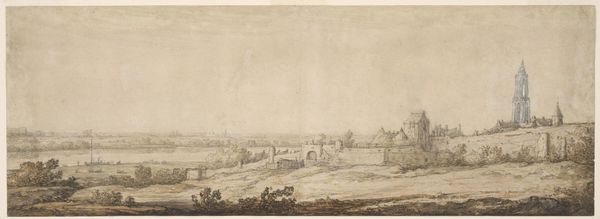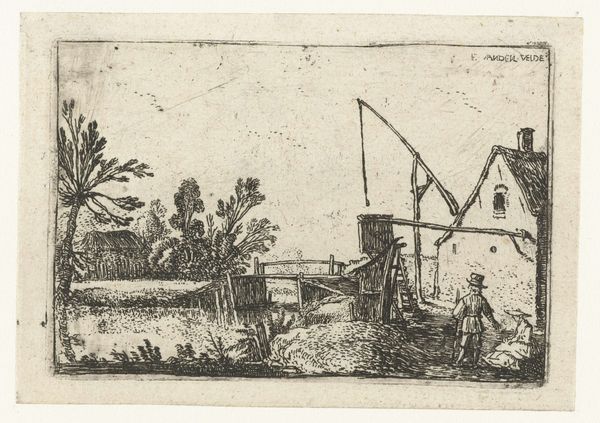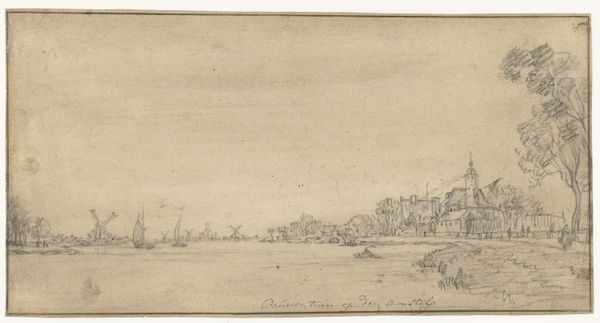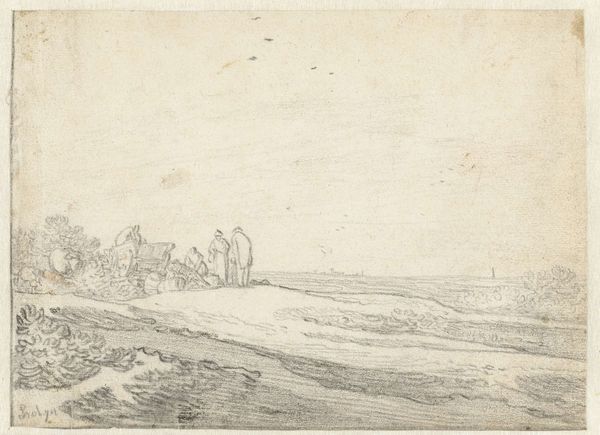
drawing, ink
#
drawing
#
dutch-golden-age
#
pen sketch
#
pencil sketch
#
landscape
#
ink
#
realism
Dimensions: height 64 mm, width 173 mm
Copyright: Rijks Museum: Open Domain
Curator: This drawing is titled "Landschap met een koets," or "Landscape with a Coach," made sometime between 1629 and 1688. It's attributed to Philips Koninck and resides here at the Rijksmuseum. You can see it was executed in ink, likely with a quill pen. Editor: My first thought is, oh, what a wonderfully simple, almost understated composition, really capturing the feeling of open country and movement across a vast space in such a tiny format. It almost hums with life despite being so spare. Curator: Right, it is remarkably compact. Koninck was, of course, fascinated by landscape as a representation of cultivated land and Dutch prosperity. It's interesting to note how the seemingly straightforward medium—ink on paper—reflects a burgeoning paper industry, a commodity crucial for both artistic production and wider societal functions like record-keeping and trade. Editor: Absolutely! It feels almost like he's mapped out a little universe using humble ink. There's a horse-drawn coach, almost lost amidst all the little windmills, dwellings, and figures dotted along the scene, all captured so fleetingly. I almost want to write a story about that coach, what's inside, and where it's traveling. Curator: Considering his relatively humble origins, Koninck was intimately familiar with the labor of the landscape, that the picturesque quality represented wealth derived from agriculture. Ink, compared to oil paint, was a democratizing force. The subtle tonal gradations are fascinating, given the limits of the medium. Look at how he suggests distance with simple line variation. Editor: It is almost dreamlike. I love how he hasn't crowded everything with too much detail. Each form is subtly suggested, allowing the viewer’s eye to travel and the imagination to roam, much like the horse and carriage crossing the land. Curator: Exactly. These panoramic visions celebrated a distinctly Dutch control and ordering of the natural world and how those visions themselves depended on expanding trade networks. A potent sketch considering the simplicity of its components. Editor: I couldn’t agree more! What a joy it's been to explore its material history alongside its quietly epic mood.
Comments
No comments
Be the first to comment and join the conversation on the ultimate creative platform.
